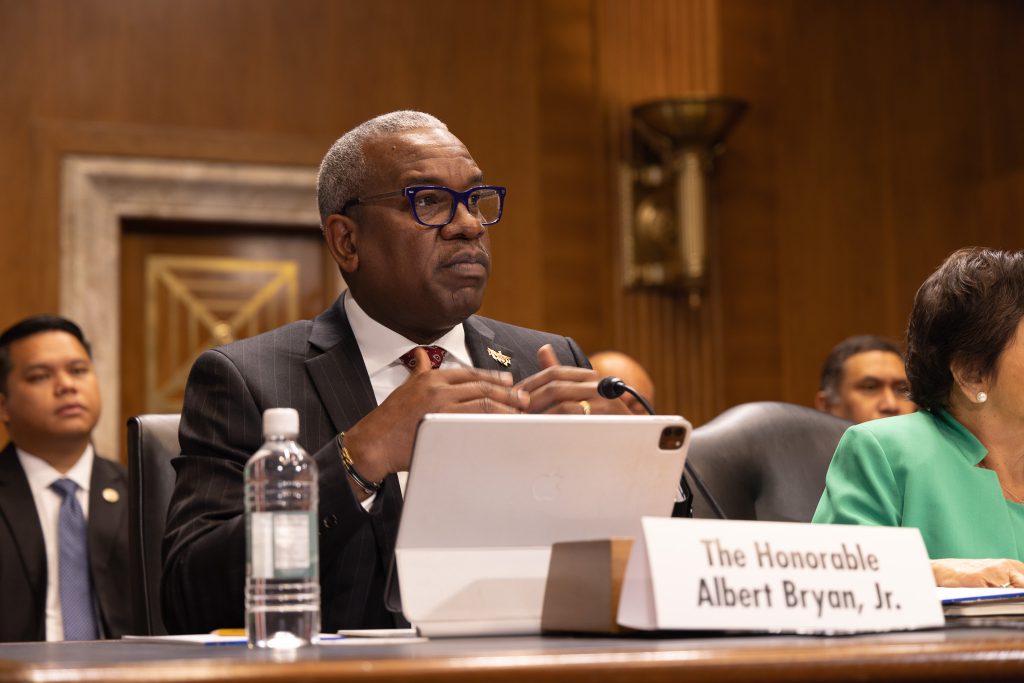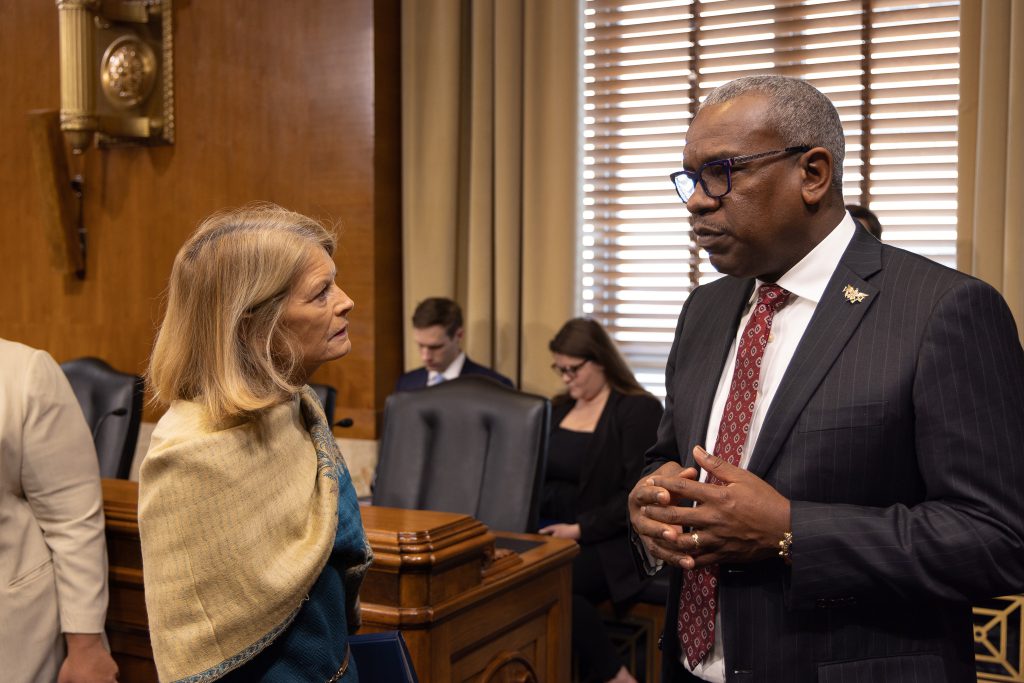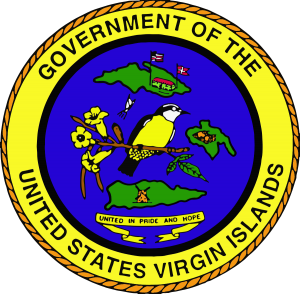Governor asks senators for assistance with expanded cost-sharing waivers for federal grants, rum cover-over, health care disparities, EPA resistance to restarting refinery and energy issues

U.S. VIRGIN ISLANDS — Governor Albert Bryan Jr. updated Congress on the state of the Territory on Thursday, February 9, during the Senate Energy and Natural Resources Committee hearing.
During his opening remarks, Governor Bryan highlighted expanding cost-sharing waivers for federal grants, rum cover-over, health care disparities, resistance by the U.S. Environmental Protection Agency (EPA) to restarting the refinery and energy issues and requested Congress assistance in mitigating those challenges to the U.S. Virgin Islands.
“We already have the money; it’s already been allotted and allocated. We just need cooperation between our federal government divisions,” the Governor told the committee members.

To watch the Senate Committee hearing, go to www.energy.senate.gov.
While a major portion of the hearing was focused on the Pacific territories and the current issues between the United States and China, Governor Bryan had an opportunity to provide details to the senators about inflation, workforce development and the lack of sufficient health care workers in the Territory.
Committee Chairman Senator Joe Manchin (D-W. Virginia) asked about inflation in the territories, and Governor Bryan detailed how the Territory’s current 5 percent inflation rate is affecting Virgin Islanders.
“Energy is 63 cents a kilowatt-hour, compared to 12 here,” Governor Bryan said. “Construction, a public housing unit is costing us $380,000 to $500,000 per unit, and construction has tripled in cost.”
Senator John Hickenlooper (D-Colorado) asked the governors what their greatest challenge is, and Governor Bryan responded that it is finding enough workers to fill all the jobs on dozens of recovery projects throughout the Territory.
“We lost 20 percent of our population in the last decade because of the hurricanes, the closing of the refinery and the recession,” the Governor said. “We need as much people as possible. We need 5,000 additional workers, that’s over 5 percent of our population, and 10 percent of our workforce to complete this recovery.”
In response to a question from Senator Mazie Hirono (D-Hawaii) about the lack of health care workers, Governor Bryan said he is trying to ease that lack using federal funding, but the situation remains challenging.
“The ARPA funding has been so useful because it is so flexible and you can use it in so many ways. We’re incentivizing nurses and medical personnel on the whole to move to the islands,” Governor Bryan said. “But housing and everything else is expensive. Incentivizing them is good, but not only are they lesser paid but there’s a higher cost of living, so it’s like a double-whammy. Being able to pay more would be great.”
Other governors appearing on the panel before the Senate Committee were Governor Pedro Pierluisi of Puerto Rico; Governor Lourdes Leon Guerrero of Guam; Governor Arnold Palacios of the Commonwealth of the Northern Mariana Islands; and Governor Lemanu Mauga of American Samoa.
The Bryan-Roach Administration is investing in the Territory’s people, infrastructure and future through transparency, stabilizing the economy, restoring trust in the government and ensuring that recovery projects are completed as quickly as possible. Visit transparency.vi.gov
